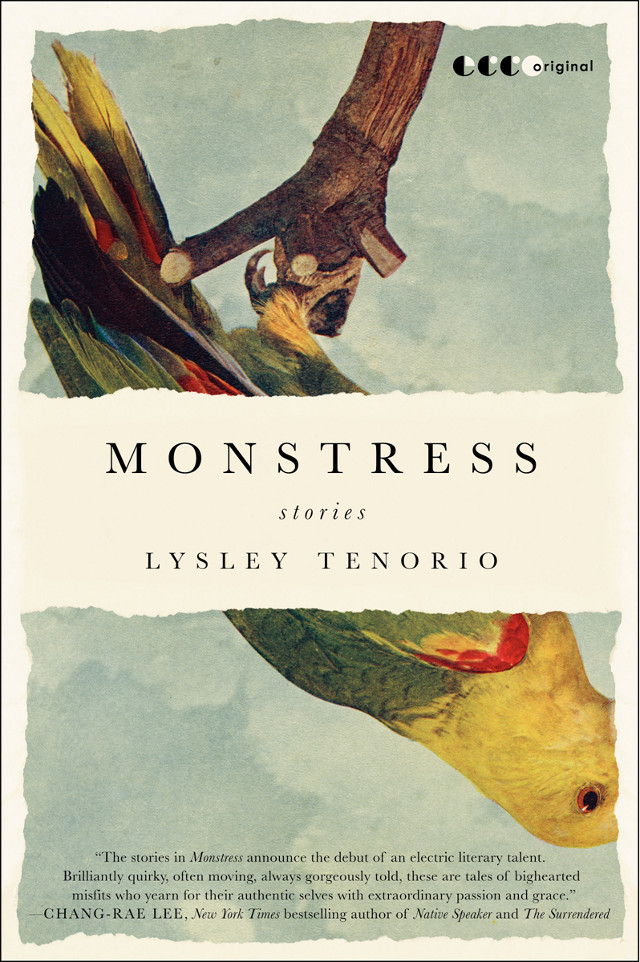SUMMARY
This is AI generated summarization, which may have errors. For context, always refer to the full article.

MANILA, Philippines – It’s almost painful to have to read and describe Lysley Tenorio’s “Monstress.”
This isn’t because the book is awful (I assure you, it’s terrific), but because reviewing requires reading between the lines and spelling them out, and “Monstress” is not about that at all.
All of Tenorio’s protagonists come with a complex suite of past and present demons, backdrops of national and cultural isolation, and familial and romantic angst, and Tenorio packs all the detail into the limited span of a short story.
Despite the compelling afflictions and hang-ups that haunt most of his protagonists (leprosy, a dead-end acting career as a movie monstress, mixed race skin), Tenorio is careful to let them be real people and not caricatures of the grotesque.
The subtlety of his characters belies his understanding of a key life principle that so few fictionists translate onto the page: not everything we do, say, or feel is logically explained by who we are. Sometimes we just do things, and we – as people, and as readers – have to go back and figure out why.
READ: The man behind ‘Monstress’
‘Monstress’ as Filipino-American writing
What unites the protagonists of “Monstress” is a search for identity – the confusion over who they are, who they want to be, and whether to let their afflictions define them or to abandon them. Perhaps this is why critics peg Tenorio’s collection as “Filipino-American” – his characters are located at several crossroads, with nation and culture being prominent.
One notable use of national context – and it’s a very quiet, well-orchestrated nod to it – is human mobility. All of the stories in “Monstress” end with a departure, which brings the fact of leaving and its role in the Filipino psyche to the fore. After all, we live in a country where leaving has multiple meanings – it’s a dream, a curse, a destiny, a survival tactic, and Tenorio is conscious of this Filipino fact of life.
For example, “Felix Starro” revolves around the grandson of a huckster faith healer who is about to illegally migrate to the US. We catch him at a moment of ambiguity, desperation, and fear, at the precise moment when he hates his past and his future at the same time.
Here, Tenorio provides insight into what enthralls and terrifies us about leaving – that it may change you in ways that you cannot imagine.
High points
Watch Lysley Tenorio read ‘The Brothers’ here:
One standout story in the collection is “Help,” which is about a young boy recruited by his uncle to attack the Beatles, who rebuffed the invitation of Imelda Marcos, at the airport. The historically accurate premise of the story is enough to draw readers in – who wouldn’t be fascinated by politics’ defiance of Beatlemania?
However, it’s Tenorio’s portrayal of the divide between global and local, political and individual, that shows his sensitivity to the everyday contradictions Filipinos face in a context where West and East are unknown categories, where the line between “ours” and “not ours” becomes blurred.
Another gem in the collection is the final story, “L’Amour, CA.” The afflictions and oddities in “Monstress” are charming and inventive, but when Tenorio strips them away, he truly shines. “L’Amour, CA” is about a family that migrates to the US and struggles to stay together. Their demise lies in one daughter being swept along by the novelty of America, and the little brother who struggles to care for her, and at the same time be cared for by her, in this unfamiliar place.
The honesty with which Tenorio captures the voice of a young boy (also done well in “Superassassin”) is admirable, and the innocent, unspoken betrayals and deceits between siblings is immediately recognizable. However, it’s the story’s beautifully puzzling ending that will keep you coming back to figure out what happens next.
How to enjoy ‘Monstress’
The author talks about writing here:
The best way to enjoy the stories in “Monstress” would be to not insist on the literal connections, to not peg character background to action so neatly. Admittedly, Tenorio falls prey to this sometimes – the dialogue of his characters is so eloquent that they often scream EMOTIONAL TURNING POINT HERE!!!!
Instead, watch out for repetitions and metaphors, such as in the protagonist’s mentions of breathing in “The Brothers” and the literal and metaphorical presence of blood in “Felix Starro” and “L’Amour, CA.”
The constant mention of breathing by the protagonist of “The Brothers,” for example, works on multiple levels: the expression of guilt and confusion over the passing of an estranged transgender sibling, the life that he/she could not live within the family, a conservative mother’s uncomprehension of a son-turned-daughter.
Tenorio’s work rewards the attentive reader, the kind who goes back and reads the story again, slowly. Tenorio leaves the reader to make the connections on their own, and his work has enough depth for the reader to read “Monstress” via culture, gender, psychoanalysis, or just for pure pleasure.
Any way that you read it, the collection gets better with each reading, and assures that Lysley Tenorio will remain on the literary radar for some time. – Rappler.com
(‘Monstress’ is published by Ecco Books and is available at National Book Store for P399.)
(Florianne L. Jimenez teaches Literature and College Writing at the University of the Philippines Diliman. She is a Palanca award-winning non-fiction writer, with a creative interest in the self, places, and consciousness. She has a massive to-be-read pile dating back to 2008, which includes such titles as ‘The Collected Stories of Gabriel Garcia Marquez,’ ‘Book 5 of Y: The Last Man,’ and ‘The Collected Works of TS Spivet: A Novel.’)
Add a comment
How does this make you feel?
There are no comments yet. Add your comment to start the conversation.